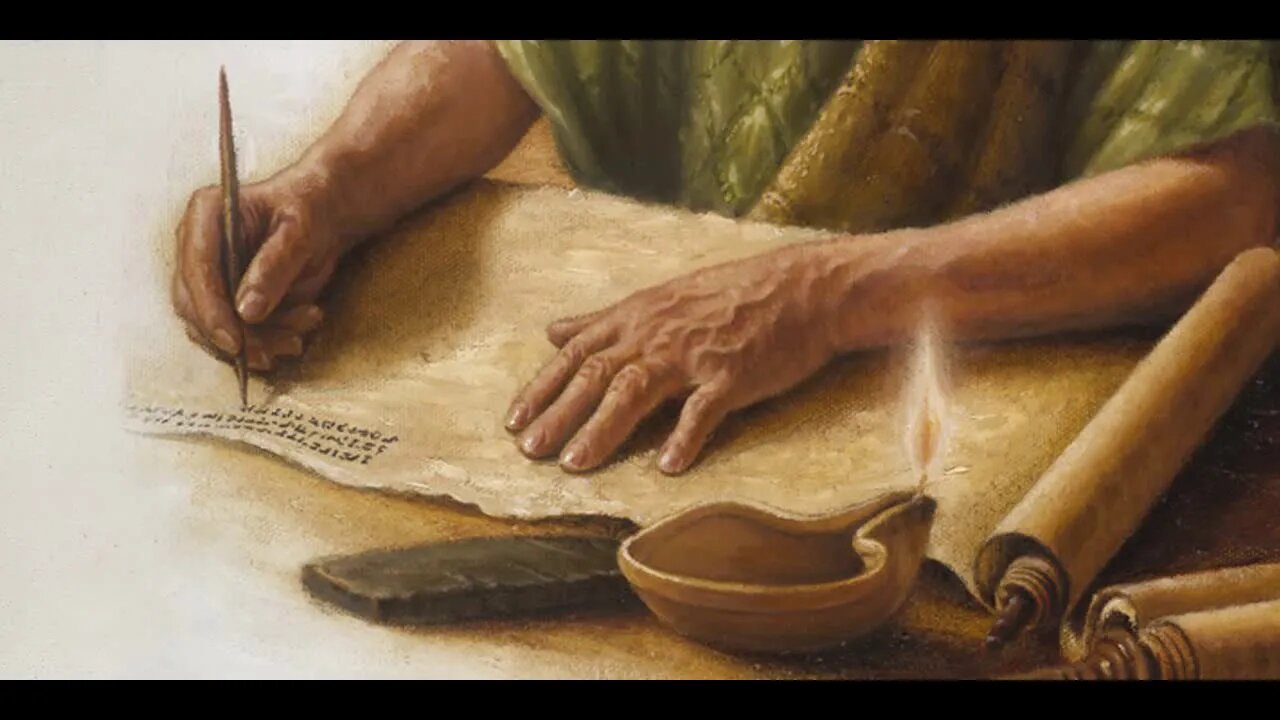Premium Only Content

Christ's letter to King Abgar V, the King of the Arabs
Apologies for the audio. I was leaving a town on my bicycle trip at the end of the day and the chain broke. Long story short, I had to stay at a hotel and rather than waste an opportunity, this video happened: Christ's letter to King Abgar V. This is in response to our viewer "the Traffic" who said I ought to be consistent and apply the same historical principles to Christianity, so I decided for this I would but I will keep to the main focus of the channel.
I am sometimes challenged by a viewer “isn’t there is more historical proof for Muhammad than for Jesus”. However, there was at one time an official public record of Jesus’ existence and if we don’t have it now, it is simply because in the intervening centuries the city where it was kept was destroyed by the Persians. Luckily for us, Eusebius, a renowned historian made a record of what the archives said centuries before they were destroyed. Did you know that according to a 4th century source, Jesus sent a letter to the king of the Arabs, Abgar V? This is often dismissed as legend but I consider the evidence to be credible and it is the only example of Jesus’ words outside of the bible.
The city of Edessa was situated at the site of the modern town of Şanlıurfa in the Kurdish region of Turkey about 50 km northeast of Kobane. Pliny the Elder refers to the natives of Osrhoene and the Kingdom of Commagene as Arabs and the region as Arabia. Abgar II is called "an Arab phylarch" by Plutarch, while Abgar V, the person who this account is about, is described as "king of the Arabs" by Tacitus. Therefore, Edessa ought to be considered an Arab city. In the 3rd century, the Arab cities of Hatra, Edessa and Palmyra fell and as a result, al-Hira became the Arab capital for the Lakhmids. What follows is highly relevant since a later Arab king, Iyas Ibn Qabisha al Ta’i, who took on the moniker Muhammad, was also called king of the Arabs.
Eusebius of Caesarea, writing in the early fourth century, possibly 325 or 326 AD, records a curious story in chapter 13 of his “Ecclesiastical History”.
Eusebius writes that word of Christ’s wonder-working power had spread beyond Judea and that he had attracted the attention of many from foreign countries “who had the hope of being cured of their diseases and of all kinds of sufferings.” He goes on to say “King Abgar, who ruled with great glory the nations beyond the Euphrates, being afflicted with a terrible disease which it was beyond the power of human skill to cure, when he heard of the name of Jesus, and of his miracles, which were attested by all with one accord sent a message to him by a courier and begged him to heal his disease.” Eusebius explains that while Jesus didn’t comply with his request at that time, he sent a personal letter in which he promised that he would send one of his disciples to cure his disease, and also promised salvation to himself and his entire house. After the resurrection and ascension, Thomas sent Thaddeus to the King, who carried out Jesus’ promises.
Here is what the letter said as transcribed from the Edessa archives and translated into Greek for Eusebius:
Abgar, ruler of Edessa, to Jesus the excellent Saviour who has appeared in the country of Jerusalem, greeting. I have heard the reports of you and of your cures as performed by you without medicines or herbs. For it is said that you make the blind see and the lame to walk, that you cleanse lepers and cast out impure spirits and demons, and that you heal those afflicted with lingering disease, and raise the dead. And having heard all these things concerning you, I have concluded that one of two things must be true: either you are God, and having come down from heaven you do these things, or else you, who does these things, are the Son of God. I have therefore written to you to ask you if you would take the trouble to come to me and heal the disease which I have. For I have heard that the Jews are murmuring against you and are plotting to injure you. But I have a very small yet noble city which is great enough for us both.
In the archives, according to Eusebius was recorded the answer of Jesus to the king through the courier Ananias:
Blessed are you who hast believed in me without having seen me. For it is written concerning me, that they who have seen me will not believe in me, and that they who have not seen me will believe and be saved. But in regard to what you have written me, that I should come to you, it is necessary for me to fulfil all things here for which I have been sent, and after I have been taken up I will send to you one of my disciples, that he may heal your disease and give life to you and yours.”
-
 1:18:20
1:18:20
Origins
1 year agoFirst EVER accurate Quran concordance | @SaintMurad
6863 -
 47:39
47:39
Michael Franzese
4 hours agoJewelry King Trax NYC EXPOSES How the Powerful Steal from You
45.3K7 -
 LIVE
LIVE
Slightly Offensive
3 hours ago $2.86 earnedCandace REDPILLS the Masses in BOMBSHELL Theo Von Interview | Guest: Shane Cashman
1,047 watching -
 LIVE
LIVE
megimu32
3 hours agoON THE SUBJECT: IRL Streamers Attacked & Nostalgic Animal Movies That Made Us Cry
353 watching -
 1:00:54
1:00:54
The Tom Renz Show
6 hours agoMore Epstein/FBI, a Scary Trade War, & the Dem Echo Chamber
7.49K -
 40:43
40:43
Kimberly Guilfoyle
7 hours agoDems Double Down on Delusion-Why? Live with Tony Kinnett & Bo French | Ep.202
77.8K31 -
 1:28:42
1:28:42
Redacted News
6 hours agoBREAKING! SOMETHING BIG IS HAPPENING IN EUROPE ALL OUT WAR IS COMING AGAINST RUSSIA, TRUMP FURIOUS
121K267 -
 47:50
47:50
Candace Show Podcast
6 hours agoBREAKING: Judge Makes Statement Regarding Taylor Swift's Text Messages. | Candace Ep 155
113K110 -

Josh Pate's College Football Show
3 hours ago $0.29 earnedCFB’s Most Hated Teams | FSU & Clemson Future | Big Ten Win Totals | Star Rankings Overrated?
14.5K -
 1:33:47
1:33:47
CatfishedOnline
4 hours agoGoing Live With Robert - Weekly Recap
27.8K